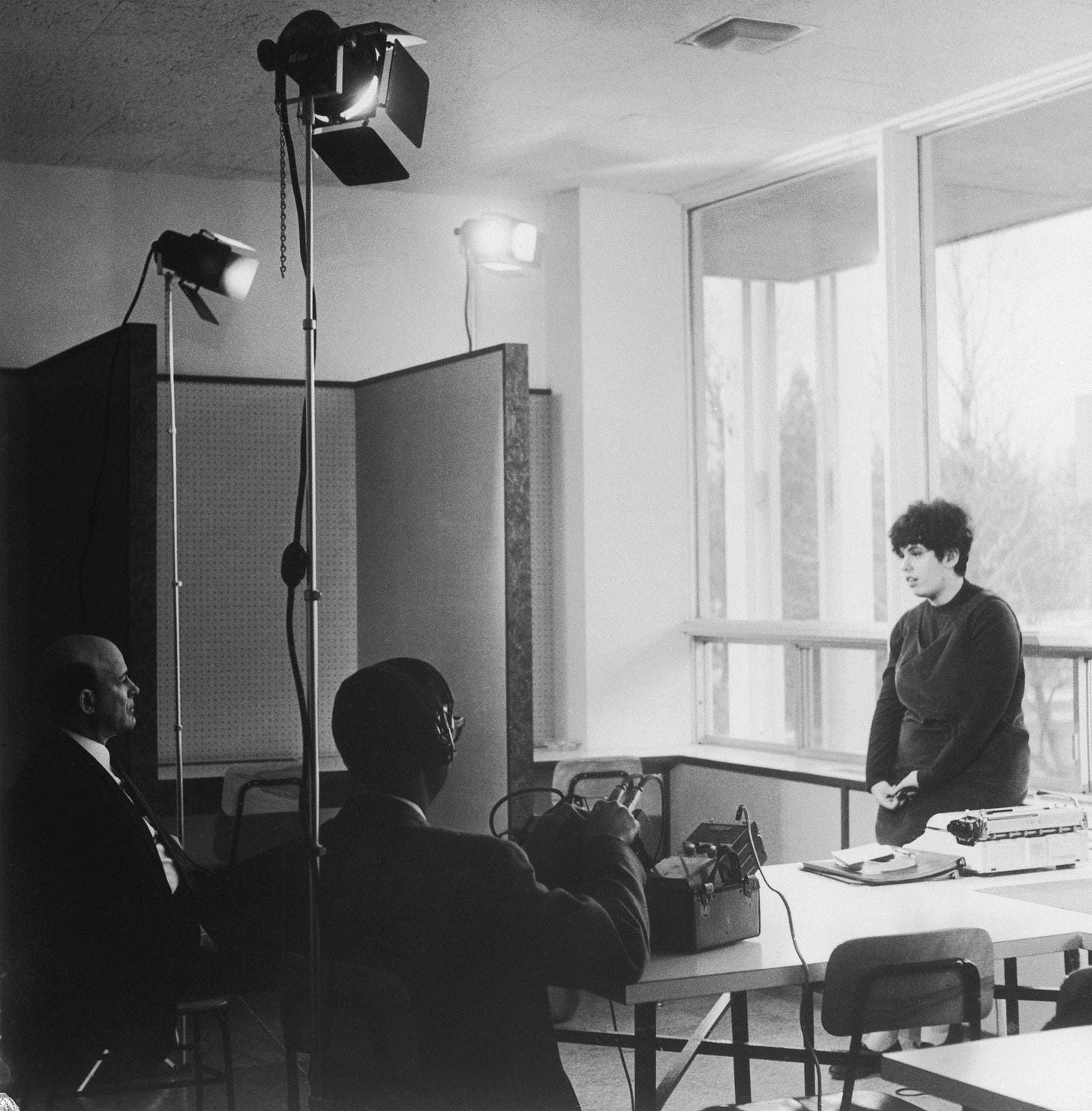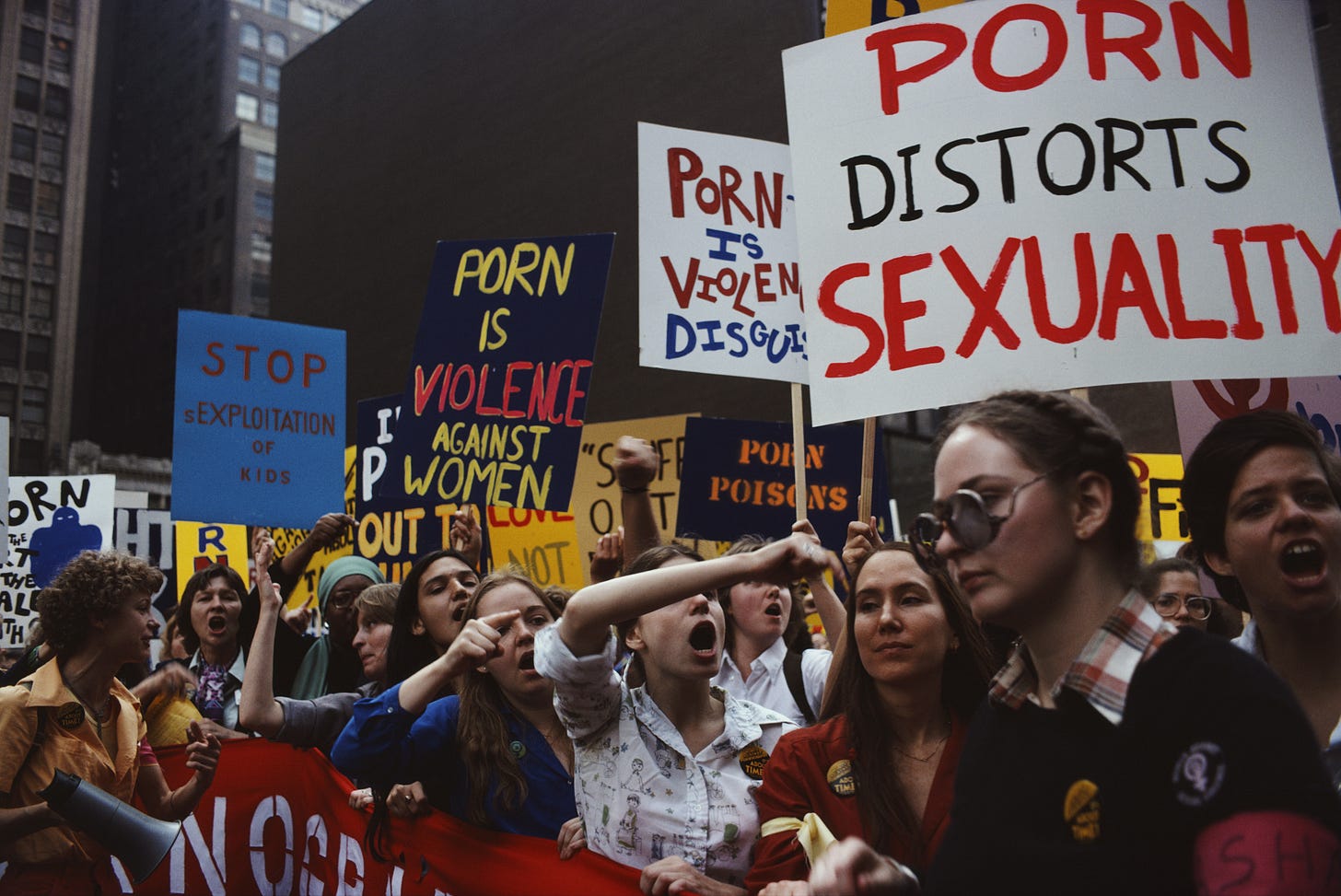Bob Jensen
During the three decades that I have been speaking about the feminist critique of pornography, I would often say that when I was a young man I was an expert on feminists and feminism.
I knew that feminists were ugly women who couldn’t get dates.
That attempt at humour made a simple point: Growing up, I had believed what so many men (and even some women) were taught to believe, and wanted to believe—that feminism was absurd, the refuge of losers. But when I started reading feminist writing and meeting feminists, I began to understand the reason men dismiss feminism: We are afraid of having to face a compelling critique of patriarchy, which would mean facing ourselves.
I used to think that my joke was acceptable because, around the turn of the 21st century, I assumed such retrograde beliefs were on their way out. No men—except perhaps my father’s generation, the dinosaurs of sex/gender politics—still accepted such ridiculous notions about feminism. Turns out that I assumed wrong.
I wouldn’t tell that joke in the United States today, given how a reactionary antifeminism still exists, not only on the margins but at the core of the dominant culture, and is one of the selling points of an authoritarian political movement that has attracted many young men. I’ll return to that subject, but for now I want to reflect on my own position in the world of sex/gender politics.
It seems that I’m a dinosaur of sorts, though not yet extinct.
I continue to embrace the radical feminism that emerged in the late 1960s and 1970s during the second wave of feminism. Many people—not only conservative antifeminists but also many liberal/postmodern feminists—would say I am out of step, that my analysis is out of date, that the politics I support is a thing of the past.
But I continue to argue that radical feminism, especially the feminist critique of pornography and prostitution, is still relevant, not only for women but for men. Although that is a minority position today, both within feminism and in the larger culture, radical feminism is our best hope of progress in sex/gender politics. I want to make that argument by talking about two of the most important people in my life, Andrea Dworkin and Jim Koplin.
Sex work? Sex positive?
Before getting to those people, let me first deal with two terms that are commonly used by pornography’s defenders.
The first is “sex work,” which liberal/postmodern feminists, along with most liberal/left men, use to describe street prostitution, brothels, escorts, massage parlors, pornography, and other forms of online sexual services. We are asked to believe that these activities are just work and should be treated like other kinds of labor. A radical feminist analysis argues that allowing men to buy and sell objectified female bodies for sexual pleasure is at odds with women’s liberation.
Valérie Tender, a survivor of the sex trade, points out that the main job requirement is “to be available to be sexually harassed” and the main skill needed is the ability to dissociate from what is happening to your body. A feminist philosopher has pointed out that “if we apply the regulations currently applied to other forms of work to the selling and buying of sex, the acts intrinsic to the ‘job’ can’t be permitted; they are simply inconsistent with regulations governing worker safety, sexual harassment laws, and civil rights.” As one pornography producer I interviewed for my book told me, in a moment of unusual candor, “This is an industry that chews up and spits out women.”
That’s why I use the term “sexual-exploitation industries.” It is a more accurate description of the business of buying and selling objectified female bodies.
The second is “sex positive,” a term that the pro-pornography forces use to suggest that they are positive and we are somehow negative. But I don’t know any radical feminist who is sex negative. Radical feminists realise that sexuality is a part of the human experience and that sexual activity can be life-affirming and consistent with sex/gender justice. Or not.
The real question is, what kind of sex is one positive about? Radical feminists are not positive about patriarchal sex. It’s not surprising that patriarchy, the term for social systems based on institutionalized male dominance, normalizes sex that is based on male dominance and that the pornography marketed primarily to men routinely features sexual behavior that is cruel and degrading to women. That kind of sex is generally not positive for women. And, as I will suggest, it’s also bad for men.
Andrea Dworkin
Andrea Dworkin
I want to start with the work of Andrea Dworkin, who was a central figure in the movement, especially after her 1981 book, Pornography: Men Possessing Women. Emerging from the feminist movement that forced us to reckon with the routine abuse of women—sexual violence, domestic violence, sexual harassment—Andrea and others analyzed the cultural support system for men’s use and abuse of women, including mainstream media and pornography.
If I were to summarize Andrea’s insights into one sentence: Pornography is not just sex on screen but sex in the context of male domination and female subordination. The movement that Andrea helped lead focused on the harms to women used in the production of pornography and to women who experience sexual coercion at the hands of men who use pornography, as well as the harms to all women who live in a society in which men’s use and abuse of objectified female bodies for sexual pleasure is celebrated on screen.
Andrea’s analysis was compelling then and even more compelling today. I don’t think she could have known how right she was. Since her death in 2005, pornography’s degraded depictions of men’s sexual desire and women’s humanity have become more patriarchal, more dangerous for women. Sexual practices that eroticize cruelty toward and the humiliation of women have intensified in ways that really do defy the imagination. Yet they are now a routine part of the sexual imagination of many boys and men, and even some girls and women.
Jim Koplin
The first man I met in the feminist antipornography movement was Jim Koplin. I have described Jim as the most extraordinary ordinary person I ever met, a “Plain Radical” to borrow from the title of the book I wrote about him after his death in 2012. Today I want to focus on one of the first things he said to me, when it became clear that I wanted to get involved in the movement.
“If you want to be part of this because you want to save women, we don’t want you,” he said. “You have to be here to save your own life.”
He meant that men who harbored fantasies of being a knight in shining armor, allegedly acting out of a selfless nobility, were untrustworthy. Jim helped me understand that radical feminism was not only the road to women’s freedom but to my own. I had to care about myself, which meant I would have to confront myself and come to terms with how I had been socialised as a man.
He was right. Radical feminism demanded that I critically self-reflect on my sexist attitudes and behaviour. But it also helped me better understand my own pain and suffering. Why had I always felt that I wasn’t “man enough”? Why had my attempts to be a “real man” left me feeling miserable? Radical feminism helped me see that the ultimate source of my suffering was patriarchy’s repressive gender norms.
That doesn’t mean that women and men suffer equally in patriarchy, of course. Men’s pain is not comparable to the psychological and physical injuries that girls and women endure routinely. That’s not to minimise the suffering of boys and men who are sexually abused but to recognise the different rates of such abuse, and to acknowledge that women walk in a world in which they are always at risk.
But whatever the scale of suffering, the emotional constraints and psychological distress that men feel when they don’t fit patriarchal ideals are real. Pornography promises some relief from that distress, the promise of sexual satisfaction without the complexity of human connection. But that is always temporary and ultimately unsatisfying. And when men settle for being johns in the sexual-exploitation industries, we cut ourselves off from our full humanity and lose the chance to break free of patriarchy.
Freedom
That’s the kind of freedom that I mean in the title of this talk. I don’t mean the freedom to do whatever one wants, whenever one wants, but rather the freedom from patriarchal norms that makes it possible to become fully human. In patriarchy, men have a choice. We can follow the rules of patriarchal masculinity or we can strive for something more. Instead of accepting that men must aggressively seek dominance in competition with other men and should always seek control over women, we can choose to make other kinds of connections, to each other and to women. We can’t opt out of being male in a male-dominant world, but we can seek something beyond patriarchy, something less dangerous for women, something more fulfilling for ourselves.
That’s why there are two reasons for men to embrace radical feminism. The argument from justice asks us to do the right thing, to contribute to reducing violence, enhancing dignity, promoting solidarity. The argument from self-interest recognizes that as long as we are trapped by patriarchy’s pathological demands, men cannot be free in that deeper sense.
That’s my pitch to men: Embrace radical feminism to make the world a better place and to make your life better. When we reject the sexual-exploitation industries, we open up new space for deeper and richer sexual and emotional lives.
This is not theoretical for me. Radical feminism has made my life better, though not always easy.
Since I first encountered the radical feminist critique of pornography in 1988—the year I met Jim Koplin and read Andrea Dworkin for the first time—life has often been hard. I have been scared of the change asked of me. Even though I think I have made progress toward that fuller humanity, I have hurt other people and been hurt by them. I am not suggesting radical feminism makes men’s lives a breeze or erases our flaws. But whatever struggles that have come with feminism, I would never go back to my pre-feminist life, when I lacked the tools to understand myself and the larger forces of the world that shaped me.
Sex/gender politics today
I know that my arguments are not widely accepted by men, for different reasons. Some men want to improve their lives by embracing patriarchy, by going back to the good old days. Others want a different future for men but avoid feminism’s relevance to that project.
The reactionary desire to turn back the clock on the movement for women’s liberation was on display in the recent US presidential election and seemed to be an important component of Trump’s victory. That’s not only dangerous for women but a dead end for men.
At the same time, there is a growing movement to address the real problems of boys and men—such as declining education achievement and elevated rates of suicide and “deaths of despair.” Those goals are important, but where should we look to understand the source of the problems? The argument for “a prosocial masculinity for a postfeminist world” misdiagnoses the problem and the state of the world. Feminism has made important gains in the past half-century, but society is hardly postfeminist. And those seeking a prosocial masculinity should start with the insights of radical feminism if they are serious about helping men.
As I have been saying, over and over for a couple of decades, radical feminism is not a threat to men, as it was presented to me when I was a young man. Radical feminism is not an impediment to my thriving.
Radical feminism is not a threat, but a gift to men.
[A version of this essay was presented in the “Pornography and Society” lecture series at RheinMain University in Wiesbaden, Germany, on November 21, 2024. Video will be posted at https://www.youtube.com/@StadtWiesbaden/videos. These remarks draw on two of my books, The End of Patriarchy: Radical Feminism for Men and Getting Off: Pornography and the End of Masculinity.]










I really a[[reciate Jensen's work. it looks through fads and stays trained on the essntials of power.
Thank you Julie, a great read and good to know that good men can grasp the messages of radical feminism.